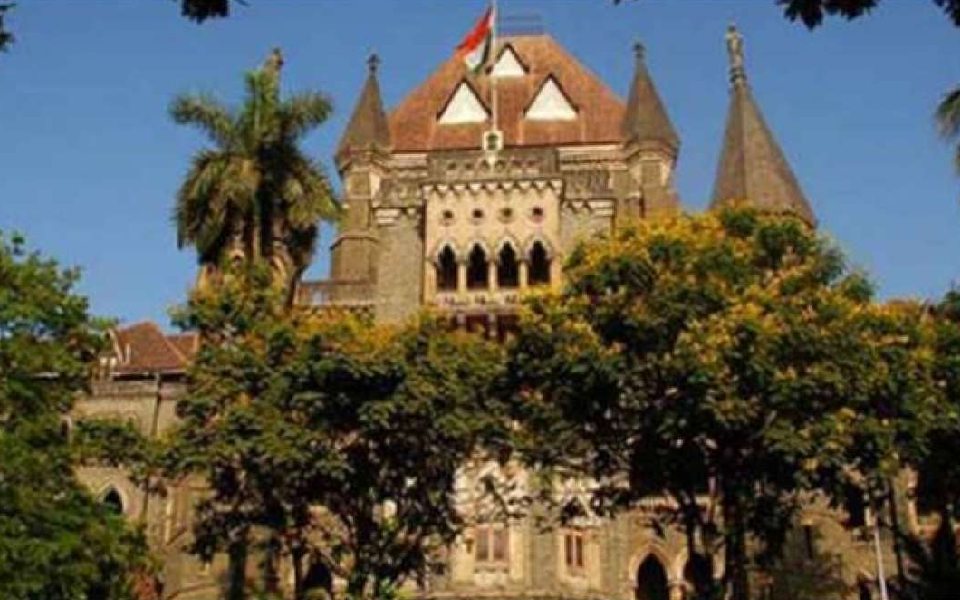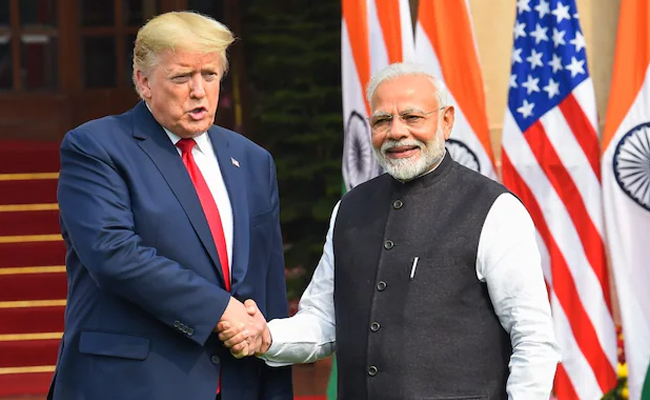Mumbai, Jul 22: Allegations of ill-treatment by a man against his own family members do not fall under the ambit of cruelty against a woman in her matrimonial home, the Bombay High Court has said.
The HC made the observation in an order dated July 18, a copy of which was made available on Monday, while quashing a March 2013 FIR (first information report) lodged by a woman against her parents-in-law, brother and sisters-in-law -- residents of Mumbai -- alleging cruelty and harassment.
A division bench, in the order, noted that peculiarly the woman did not make any allegations against her husband, and described the entire case as nothing but a "complete abuse of the process of law" and the Indian Penal Code (IPC) section related to cruelty to women in matrimonial home.
The bench of Justices A S Gadkari and Neela Gokhale maintained the FIR was a "proxy litigation" lodged by the man through his wife against his own family members to settle a property dispute.
The court noted this was a "peculiar case" where the woman has alleged her in-laws of committing an offence under section 498A of the IPC without a single allegation against her husband.
Section 498A pertains to harassment of a woman by her husband or any relative of the husband.
The court, in its order, said the allegations of harassment and cruelty made by the woman against the petitioners are "quite general and vague".
"Undoubtedly, she (complainant woman) has given a list of incidents of cruelty in the FIR. However, the instances are also of a nature that do not fulfil the ingredients of section 498(A) of the IPC," the HC observed.
Some of the alleged ill-treatment is aimed against the husband and not even the complainant herself, the bench pointed out.
"Allegations of ill-treatment by a man against his own family members do not fall within the scope and ambit of section 498(A) of the IPC," the court clarified.
The woman, in her complaint, had alleged her in-laws used to pick fights with her husband on petty issues to drive him and her out of the house.
She further claimed her in-laws did not allow her to use their kitchen appliances, barred her from accessing their residence's terrace and garden, and would ask the domestic help not to do her household work.
The court said the present case was a "complete abuse of the process of law."
"The FIR is nothing but a shot fired by the man from his wife's shoulder to espouse his own cause of his interest in his father's property. We, thus, have no hesitation in holding that the FIR is filed with an ulterior motive for wreaking personal vengeance on the petitioners," it maintained.
The judges were critical of the gross abuse of IPC section 498A.
"The police machinery has been used for realizing private interest of the complainant and her husband. The present case is a classic example of gross abuse of section 498(A) of the IPC," the bench noted.
"Surprisingly, these allegations against the petitioners (in-laws) are made by the complainant-wife at the behest of her own husband. Although Section 498A envisages cruelty inflicted upon a woman by a relative of the husband, it is rare to see such allegations aimed at the relatives dehors (without) any accusation against the husband," the court observed.
The petitioners' advocate had claimed the FIR was an outcome of a property dispute among the family members.
The court pointed out that the history of civil litigation between the couple and the man's family demonstrates his personal interest in settling scores in respect of a property.
Let the Truth be known. If you read VB and like VB, please be a VB Supporter and Help us deliver the Truth to one and all.
New Delh (PTI) The Congress on Saturday said it is perhaps not very surprising that India is not part of a US-led strategic initiative to build a secure silicon supply chain, given the "sharp downturn" in the Trump-Modi ties, and asserted that it would have been to "our advantage if we had been part of this group".
Congress general secretary in charge of communications Jairam Ramesh took a swipe at Prime Minister Narendra Modi, saying the news of India not being part of the group comes after the PM had enthusiastically posted on social media about a telephone call with his "once-upon-a-time good friend and a recipient of many hugs in Ahmedabad, Houston, and Washington DC".
In a lengthy post on X, Ramesh said, "According to some news reports, the US has excluded India from a nine-nation initiative it has launched to reduce Chinese control on high-tech supply chains. The agreement is called Pax Silica, clearly as a counter to Pax Sinica. The nations included (for the moment at least) are the US, Japan, the Republic of Korea, Singapore, the Netherlands, the United Kingdom, Israel, the United Arab Emirates, and Australia."
"Given the sharp downturn in the Trump-Modi ties since May 10th, 2025, it is perhaps not very surprising that India has not been included. Undoubtedly, it would have been to our advantage if we had been part of this group."
"This news comes a day after the PM had enthusiastically posted on his telephone call with his once-upon-a-time good friend and a recipient of many hugs in Ahmedabad, Houston, and Washington DC," the Congress leader asserted.
The new US-led strategic initiative, rooted in deep cooperation with trusted allies, has been launched to build a secure and innovation-driven silicon supply chain.
According to the US State Department, the initiative called 'Pax Silica' aims to reduce coercive dependencies, protect the materials and capabilities foundational to artificial intelligence (AI), and ensure aligned nations can develop and deploy transformative technologies at scale.
The initiative includes Japan, South Korea, Singapore, the Netherlands, the United Kingdom, Israel, the United Arab Emirates, and Australia. With the exception of India, all other QUAD countries -- Japan, Australia and the US -- are part of the new initiative.
New Delhi will host the India-AI Impact Summit 2026 on February 19-20, focusing on the principles of 'People, Planet, and Progress'. The summit, announced by Prime Minister Narendra Modi at the France AI Action Summit, will be the first-ever global AI summit hosted in the Global South.
Prime Minister Modi and US President Trump on Thursday discussed ways to sustain momentum in the bilateral economic partnership in a phone conversation amid signs of the two sides inching closer to firming up a much-awaited trade deal.
The phone call between the two leaders came on a day Indian and American negotiators concluded two-day talks on the proposed bilateral trade agreement that is expected to provide relief to India from the Trump administration's whopping 50 per cent tariffs on Indian goods.
In a social media post, Modi had described the conversation as "warm and engaging".
"We reviewed the progress in our bilateral relations and discussed regional and international developments. India and the US will continue to work together for global peace, stability and prosperity," Modi had said without making any reference to trade ties.





